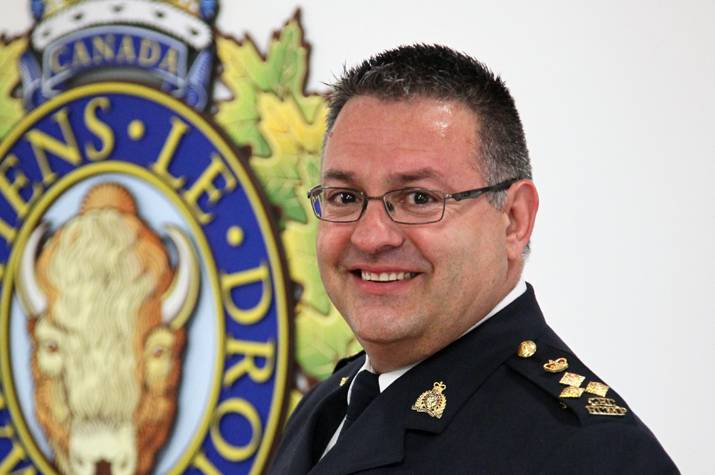Retired RCMP Commissioner Dan Dubeau talks about making positive impact in what ever job you have (Q-and-A)

Dan Dubeau served as acting Commissioner of the RCMP from June 2017 to April 2018.
Image by RCMP
September 26, 2024
Content
Dan Dubeau served as Commissioner of the RCMP from June 2017 to April 2018. Dubeau's career with the organization spanned more than 34 years, and in 2001 he received the Queen Elizabeth II Diamond Jubilee Medal and the RCMP Long Service Medal for his contributions. In this sixth Q&A in our former RCMP Commissioners series, Gazette writer Meagan Massad sat down with Dubeau to chat about the challenges and rewards in his career with the RCMP.
- What inspired you to join the RCMP?
- I grew up in a small town in Alberta and the RCMP was our local police force. I remember in high school, RCMP officers used to come in to our law classes and showcase the job. They talked a lot about how Mounties are part of a team, and can count on one another. I was impressed by the way they presented themselves, and once I finished university, in 1982, I decided to apply. When I got to Depot there were only 23 of us in my troop and 50 cadets on the whole base. Being such a small group, you couldn't get away with anything. They always caught me if I wasn't marching properly or swimming fast enough!
- Where was your first posting?
- I technically had two first postings. When I was graduating in 1985 there was a terrorist attack on the Turkish Embassy in Ottawa. Because of this, the government was putting more emphasis on protective policing and sent all graduating troops from Depot to Ottawa. I was supposed to be stationed in Saskatchewan, but I ended up working in Ottawa for 9 months protecting the embassies and learning how to protect against terrorist threats. After Ottawa, I was posted in Swift Current, Saskatchewan, for about four years doing front-line policing.
- Were there ever difficult situations you faced as a police officer?
-
In the late 1980s, I spent some time working downtown Toronto on the "street squad." We were a small team that dealt with street-level drugs. I was a constable working undercover in the drug section and drug enforcement. Drugs were running rampant, with cocaine in the masses coming from Columbia, and heroin coming from Thailand. It was our job to trace the drugs back to the supplier.
It was difficult to see how the drugs were infiltrating the city. We'd come into contact with drug users who'd been diagnosed with AIDS, and you knew that they didn't have much longer to live. Their lives were completely wrecked.
- How did you cope with what you witnessed working the street squad?
- I tried to remember that even if we couldn't help the drug users, our jobs as police officers helped on a larger level. If we were identifying the source of where the drugs were coming from, we could stop them from hitting the streets. Once we were able to intercept the drugs from coming into Toronto, we could help them from spreading across the city.
- Fast-forward to your role as acting Commissioner. What challenges did you face at the top?
-
When a Commissioner leaves, the world doesn't stop. We had to move forward on the mandates set in place by my predecessor Commissioner Paulson, but at the same time I didn't want to make any major decisions that might affect the new Commissioner.
We were facing many cases of harassment within the force, the auditor general had reviewed and commented on our mental health strategy, and the organization was being unionized. We had to make decisions for our members and navigate working with the unions.
Many staff members stepped up to acting opportunities with no promise of ever being promoted. It was with their help that I was able to fulfill the mandates and keep things moving.
- Where have you seen the most significant changes in the RCMP in recent years?
- The organization is becoming more focused on its people and showing transparency. I commend Commissioner Paulson on implementing a mental health strategy. When I was a young officer, mental health struggles were very real and debilitating, but no one ever talked about it. I never took time off for my mental health, even when I saw trauma in my everyday work. It's refreshing to see the shift in that part of our RCMP culture.
- What would you tell future RCMP recruits about a career in the RCMP?
- A career in law enforcement is a calling. It is a huge responsibility to become a Mountie, it's not for everyone, but it is an incredibly rewarding career. In all my years of service, I've observed that the people working for this organization genuinely care. Whether it be uniformed employees or the non-uniform employees, we all have the common goal of making a difference. If you're someone who really cares about making a difference and can put your best foot forward every day, this could be a career for you.